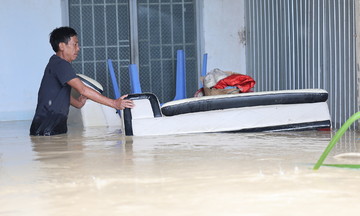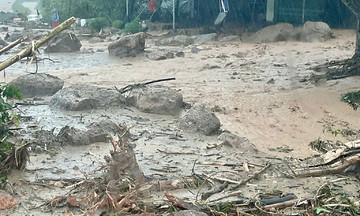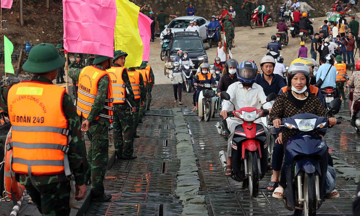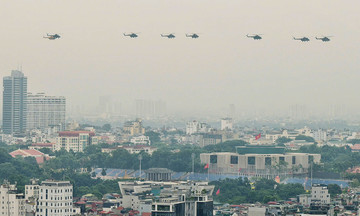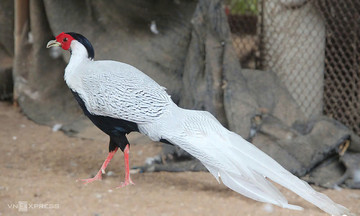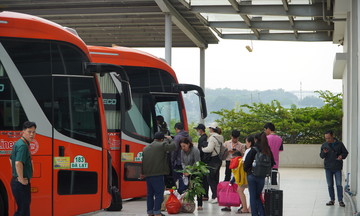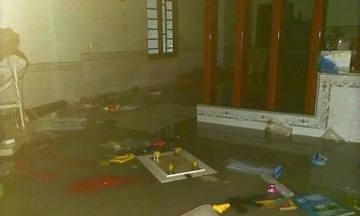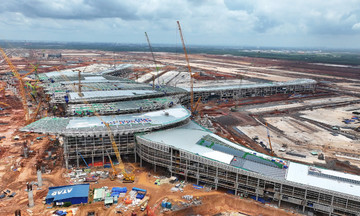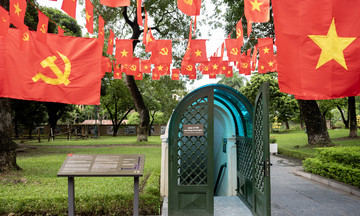According to the park's report, dedicated efforts have led to thriving sesbania and wild rice fields, along with other unique habitats. This has created a natural food source, attracting various wild bird species.
Local communities are actively involved in ecological rice production, which is expected to expand to 200 hectares in buffer zones around the park. These areas will gradually transition to organic rice farming, creating a large, safe haven outside the park for birds, especially cranes, to inhabit and breed.
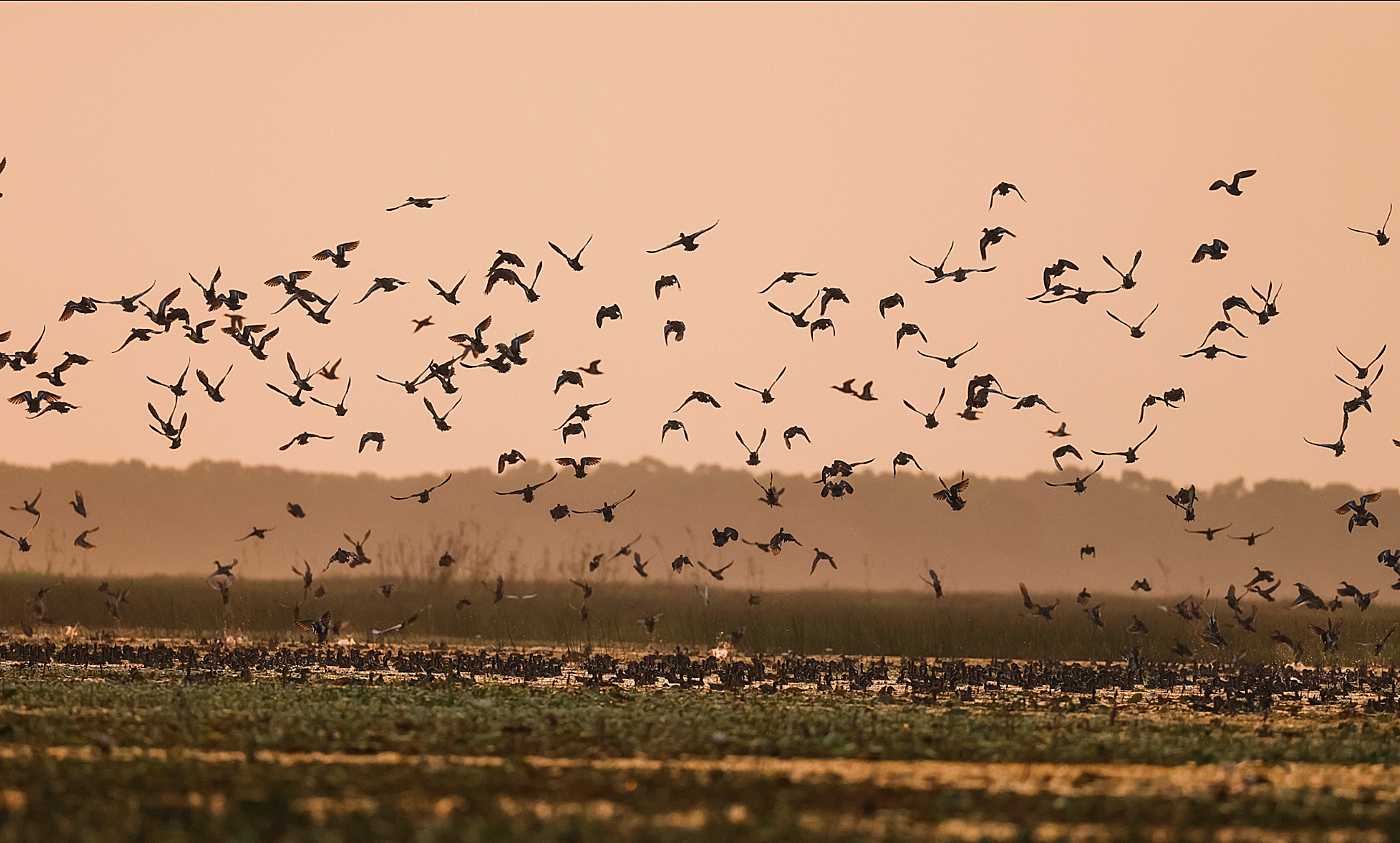 |
The restored ecosystem helps Tram Chim attract many birds to forage and reside. Photo: Ngo Tran Hai An |
The restored ecosystem helps Tram Chim attract many birds to forage and reside. Photo: Ngo Tran Hai An
Tram Chim is also promoting environmental awareness activities: organizing student participation in environmental projects and establishing a team dedicated to protecting the eastern sarus crane and other wild bird species within the park.
Regarding infrastructure investment for the crane conservation project, the park has completed juvenile crane enclosures, pairing enclosures, semi-wild enclosures, a veterinary care room, a food storage facility, and a crane monitoring technical room.
In April, the park received 6 eastern sarus cranes transferred from Thailand, which are being cared for in sub-zone A3. A 9-member crane management and care team was also established.
Weekly, the crane management and care team schedules shifts and designs crane diets based on procedures learned from Thailand and the international crane foundation. In addition to pellet feed, the cranes are given natural foods including small fish, crickets, tadpoles, mealworms, and sesbania tubers found in the wild.
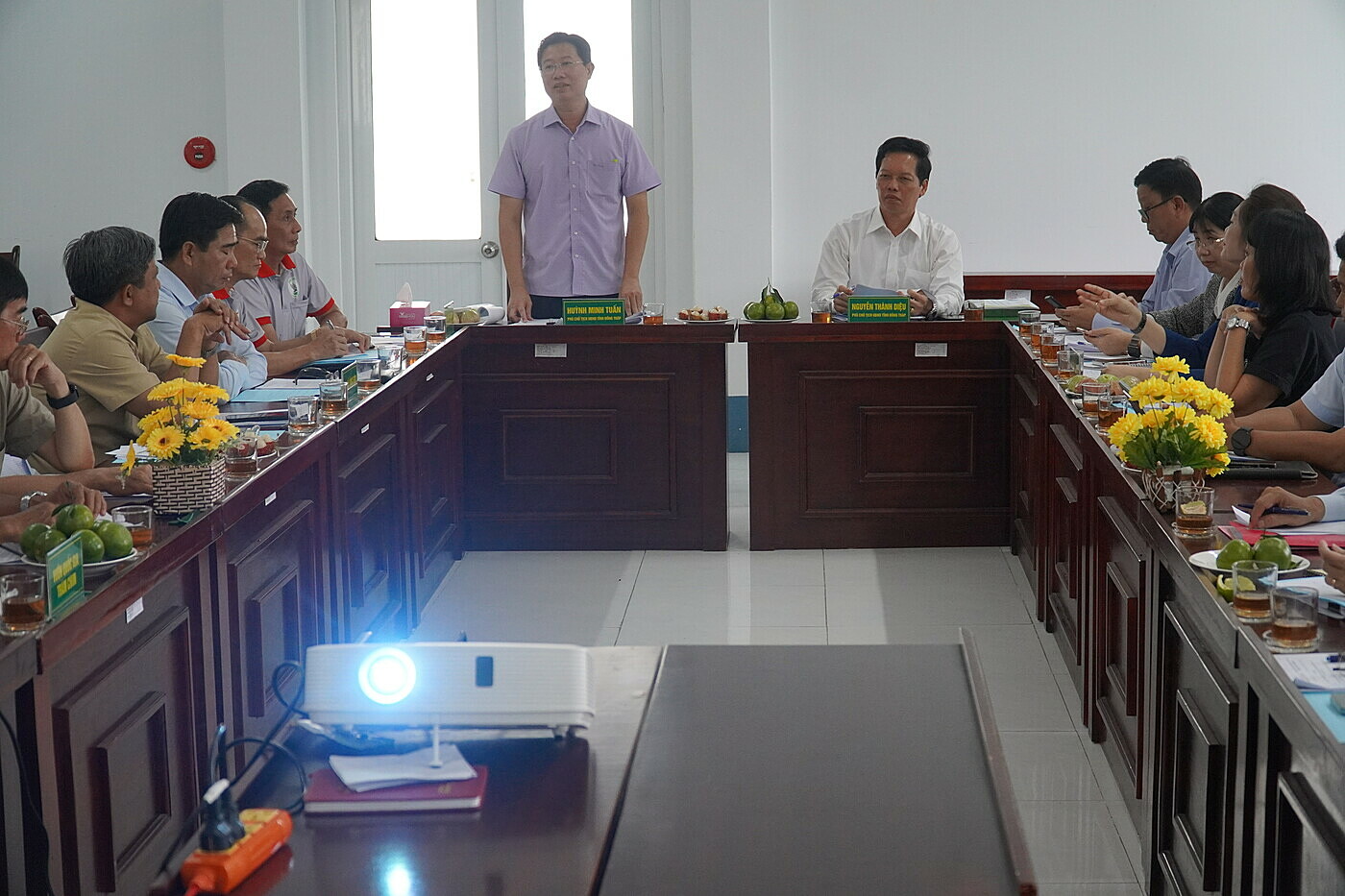 |
Huynh Minh Tuan (standing), vice chairman of the Dong Thap provincial people's committee, speaks at a meeting with Tram Chim national park on 18/7. Photo: Ngoc Tai |
Huynh Minh Tuan (standing), vice chairman of the Dong Thap provincial people's committee, speaks at a meeting with Tram Chim national park on 18/7. Photo: Ngoc Tai
Dong Thap province considers the eastern sarus crane conservation and development project at Tram Chim national park a central task in the province's biodiversity conservation efforts.
Huynh Minh Tuan, vice chairman of the Dong Thap provincial people's committee, acknowledged that eastern sarus crane conservation is a challenging task, requiring persistence and determination over a 10-year period, potentially even longer. He urged continued rigorous implementation to ensure the project's objectives are met.
Ngoc Tai




